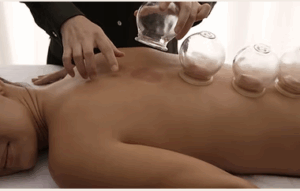Many people often take alcohol as just another normal part of social get-togethers or everyday lives. Though it is widespread, alcohol consumption may have serious effects on health overall and oral health in particular. Most of these effects are not known because most people are aware of the impact on the liver, for instance.
This blog discusses the 5 benefits of quitting alcohol on oral health and why this lifestyle choice can lead to a healthy smile according to the best dentist in Nagpur.
5 Benefits of Giving Up Alcohol on Oral Health
- Decreased Oral Dryness as well as Increased Saliva Production
Alcohol is known to dehydrate the body, including the mouth. Saliva plays a crucial role in maintaining oral health by neutralizing acids, washing away food particles, and preventing bacterial overgrowth. Excessive alcohol consumption suppresses saliva production, leading to a condition known as xerostomia, or dry mouth.
When an individual gives up alcohol, saliva production gradually returns to normal levels. This improvement aids in:
- Maintaining the mouth’s pH balance.
- Preventing decay and cavities.
- Reducing pain from dryness.
Saliva flow also enhances the natural cleaning processes, and the mouth will feel fresher and healthier. This reduction in oral dryness is one of the most immediate health benefits of abstaining from alcohol on oral health, and it’s enough motivation for many to continue.
- Decreased Chances of Gingivitis
Alcohol consumption has been closely linked with periodontal disease, commonly known as gum disease. Periodontal disease is caused by harmful bacteria that work around and accumulate on the teeth and gum line, leading to inflammation and bleeding. If left untreated, it may result in tooth loss.
Alcohol compromises immunity, leading to increased susceptibility to infections that attack the gums. Additionally, most alcoholic drinks have sugars that feed the growth of harmful bacteria that cause gum diseases.
By quitting alcohol, alcoholics can boost their immune response which helps the body heal the gums in a more meaningful way.
- Prevent the disease process from gum infections progressing.
- Enable gums to recover better after dental treatments.
- Healthier gums mean a lower risk of tooth loss and a more confident smile, making this one of the most significant benefits of giving up alcohol on oral health.
- Reduced Risk of Oral Cancer
The literature on alcohol and oral cancer is well-evidenced. Alcohol tends to irritate delicate mucous membranes in the mouth, increasing their susceptibility to damage and mutation. In individuals who use tobacco, the chances of developing oral cancer are exponentially higher when combining the two.
Alcohol elimination dramatically reduces the risk. In the few years following alcohol abstinence, the risk of oral cancer tends to start decreasing. In people who have already experienced oral cancer therapy, alcohol abstinence also reduces the likelihood of cancer recurring.
Regular dental checkup combined with an alcohol-free lifestyle helps early detection and prevention of potential oral health issues; hence, this sums up giving up alcohol’s long-term benefits on oral health.
- Good Looks and Healthy Teeth
Alcohol, especially dark-colored drinks such as red wine or whiskey, is infamous for causing teeth stains. These stains can persist over time, eventually turning yellowish or dull and even resisting even the best brushing.
Most alcoholic beverages contain acidity that breaks down the hard, protective layer of the teeth, making them sensitive to decay.
Quitting alcohol gives teeth a chance to regain their shine and strength. Here’s how:
- Enamel erosion slows down, letting the tooth sensitivity decrease.
- Stains fade to a large extent even with little or proper oral hygiene.
- Teeth appear whiter and healthier gradually.
Tooth-conscious patients find this improvement in oral health visually encouraging for abstaining from alcohol oral health.
- Better Breath and Overall Oral Hygiene
One of the lesser-known side effects of alcohol consumption is bad breath or halitosis. Alcohol dehydrates the mouth, opening it to odor-causing bacteria. In addition, the mixes containing sugar used in cocktails would also contribute to bad breath.
When alcohol is removed from someone’s life, the oral environment levels out, and bad breath becomes less common. Better hydration, coupled with better saliva flow, can help wash away bacteria and food particles that cause unpleasant odors.
In addition to fresher breath, giving up alcohol also makes it easier to maintain a consistent oral hygiene routine. Alcohol’s effects, such as dehydration and hangovers, often lead to neglected oral care habits. An alcohol-free lifestyle supports:
- Regular brushing and flossing habits.
- Fewer emergency dental issues like cavities or toothaches.
- A generally healthier and fresher feeling in the mouth.
A Step Towards a Healthier Smile
It is a huge ask for most, as giving up alcohol is just a daunting task, considering it’s an intrinsic part of their lifestyle. However, realizing the full potential ramifications that alcohol has on oral health may prompt them to reconsider their habits. Giving up alcohol helps minimize the chances of developing gum disease or oral cancer, results in a whiter and fresher smile, and so on.
For those who need improvement in oral health, one thing that matters is to go to see a dental professional. Dentists can guide individualized advice and specific treatments to overcome alcohol’s effects on oral health and obtain the smile that shines in greater glory.
Oral health reflects good general health. For example, if people make a thoughtful choice to quit alcohol, they gain good oral health and, at the same time, significantly improve their health status. As the best dentist in Nagpur emphasizes, even slight changes, such as reduced drinking habits, result in greater improvements in oral and overall health. Awareness, action, and commitment to self-care are the starting points towards a healthy smile.
Let’s toast — with a glass of water — to better smiles and brighter futures!






